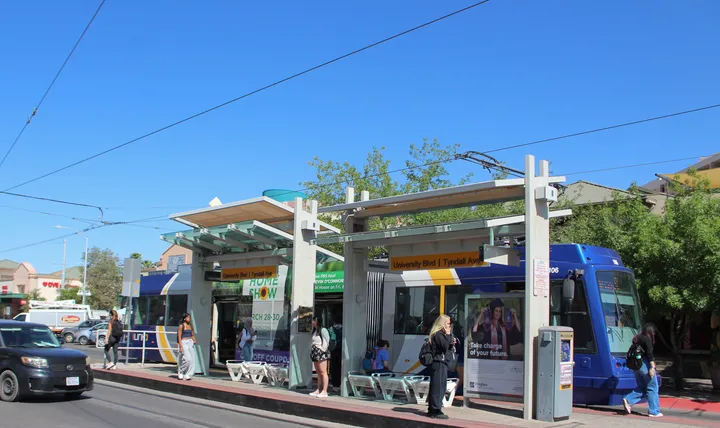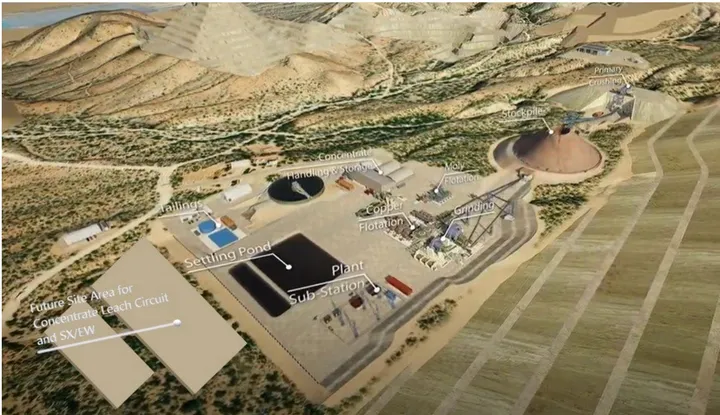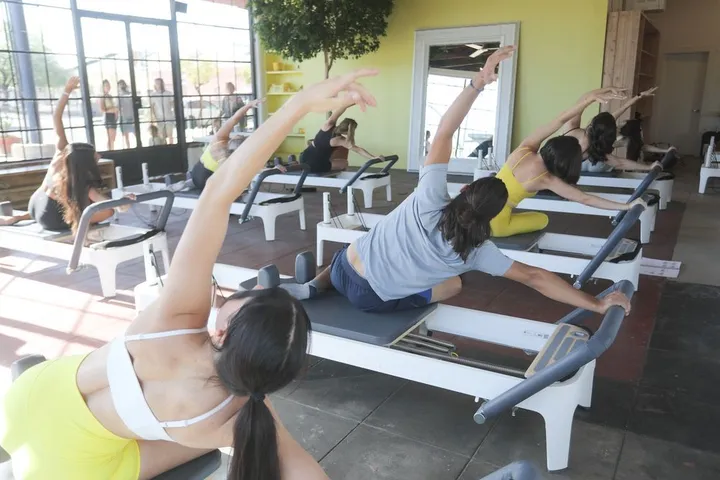Tucson council’s camping ban sparks backlash from advocates
Tucson City Council’s recent vote to ban camping in parks and washes has drawn strong criticism from residents and advocacy groups who say the policy criminalizes homelessness and fails to address underlying issues.
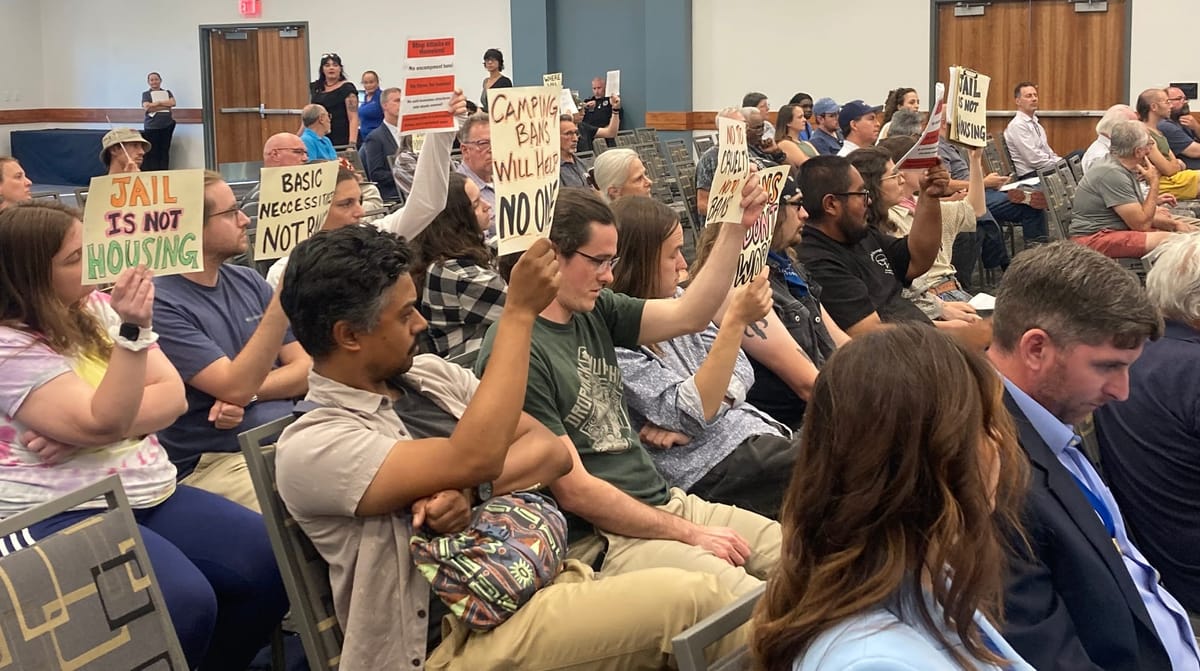
The Tucson City Council’s vote Tuesday to ban camping in public parks and washes has sparked public outcry, with residents and advocacy groups criticizing the move as punitive toward the city’s unhoused population.
The council passed the measure banning camping in washes and city parks by a 5-1 vote, with penalties including fines up to $250 or up to 10 days in jail. Following the vote, council members quickly exited the chamber in response to sharp criticism from the audience.
“People are dying from heat stroke and they have no shade," shouted one attendee. “People are seeking shade and they’re thrown in jail for it and that's okay to you? You’re not helping people, you’re killing people.”
Councilman Kevin Dahl was the lone dissenting vote, with Councilwoman Lane Santa Cruz absent from the meeting.
Mutual aid groups Community Care, Community on Wheels, Amphi Liberation Mutual Aid, Gator-Aid and others condemned the decision in a post-meeting press release, saying they were appalled by the “inhumane and backwards decision.”
“Despite meetings with mutual aid groups and nonprofits that advocate for humane treatment and evidence-based solutions for our unhoused population, the mayor and city council decided that dehumanization and criminalization will be Tucson’s response to the homelessness crisis,” the groups said in the release.
They said the council ignored “decades of data and research” showing that arresting, citing and sweeping unhoused individuals is not only costly and ineffective, but also exacerbates the cycles of homelessness and substance use.
“The mayor and city council have confirmed with this decision that they are more willing to waste resources on policies that have already been proven ineffective and will continue to erode trust between the city and unhoused folks instead of actual creative, evidence-based solutions that would provide care and humanity to our unhoused community, and they should expect these issues to get worse,” they wrote in the release.
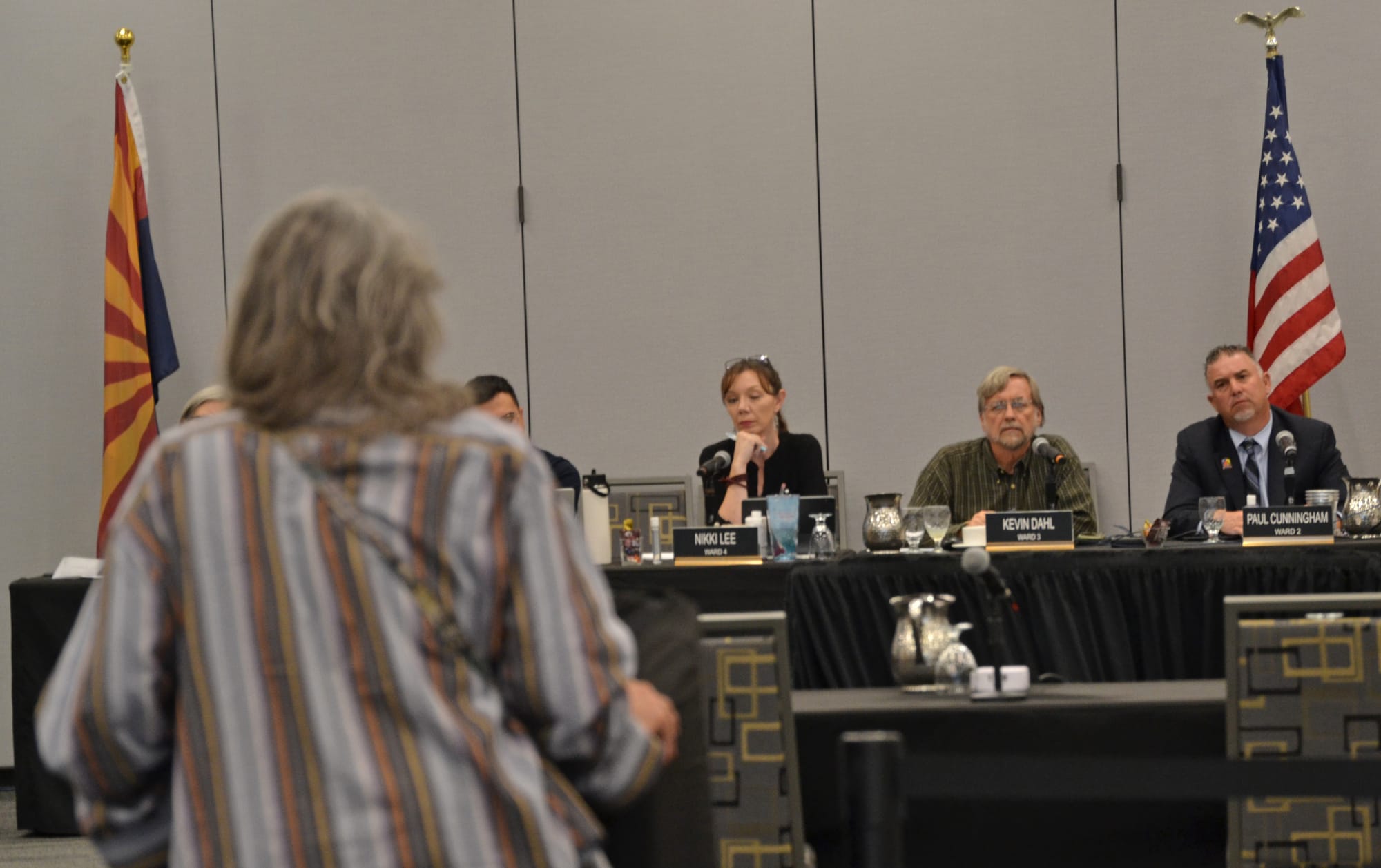
During the public comment period, community members voiced strong opposition to the ordinance.
“Most of us here are probably a lot closer to being homeless than being a billionaire,” said Sandra Gonzalez. “That’s the truth, losing your job or getting sick can push someone into the streets and this proclamation does not offer help, it just moves people out of sight and criminalizes survival.”
Before the vote, City Attorney Mike Rankin proposed revising the definition of camping in public parks under ordinance 12181. The original definition described camping as “the placement of any tent, temporary shelter or structure, blanket, cloth, or other sleeping implements on park property for the purpose of protection from the elements.”
The updated definition clarifies that camping means setting up or remaining in any area of a park where bedding, sleeping bags, tents, shade structures, boxes or similar materials are used for sleeping, or where any stove or fire is used to maintain a temporary dwelling.
Rankin explained that the previous definition was too broad to enforce effectively, and the amendment aims to shift focus from individuals present in the park during the day to those who seem to be setting up a temporary residence.
Ward 5 Councilman Rocque Perez voted in favor of the ordinance, saying he was honoring the wishes of his predecessor, longtime Ward 5 Councilman Richard Fimbres.
“I do feel a clear mandate from Ward 5 to support this not as a rejection of unhoused individuals, but out of a belief that no one should live in a wash or park,” Perez said, adding that the city needs to improve its outreach regarding services for unhoused individuals. “I think that there is a clear level of miscommunication, or a lack of communication on the available resources that the city affords to residents.”
Perez urged city staff to reconsider how communication channels are being used, noting that the City of Tucson has not effectively communicated this information.
“This is much more than unsheltered homelessness,” Mayor Regina Romero said after the vote. “This is also a public health crisis, an opioid crisis and a fentanyl crisis.”
She acknowledged the critics’ concerns, saying she agreed the situation is upsetting but that the council has a duty to respond to the voters’ requests.
“I wish we had much more money to provide dignified and safe housing for everyone,” Romero said, adding that voters “were very clear by passing Prop 312 that they wanted both the city and the county to do something about this.”
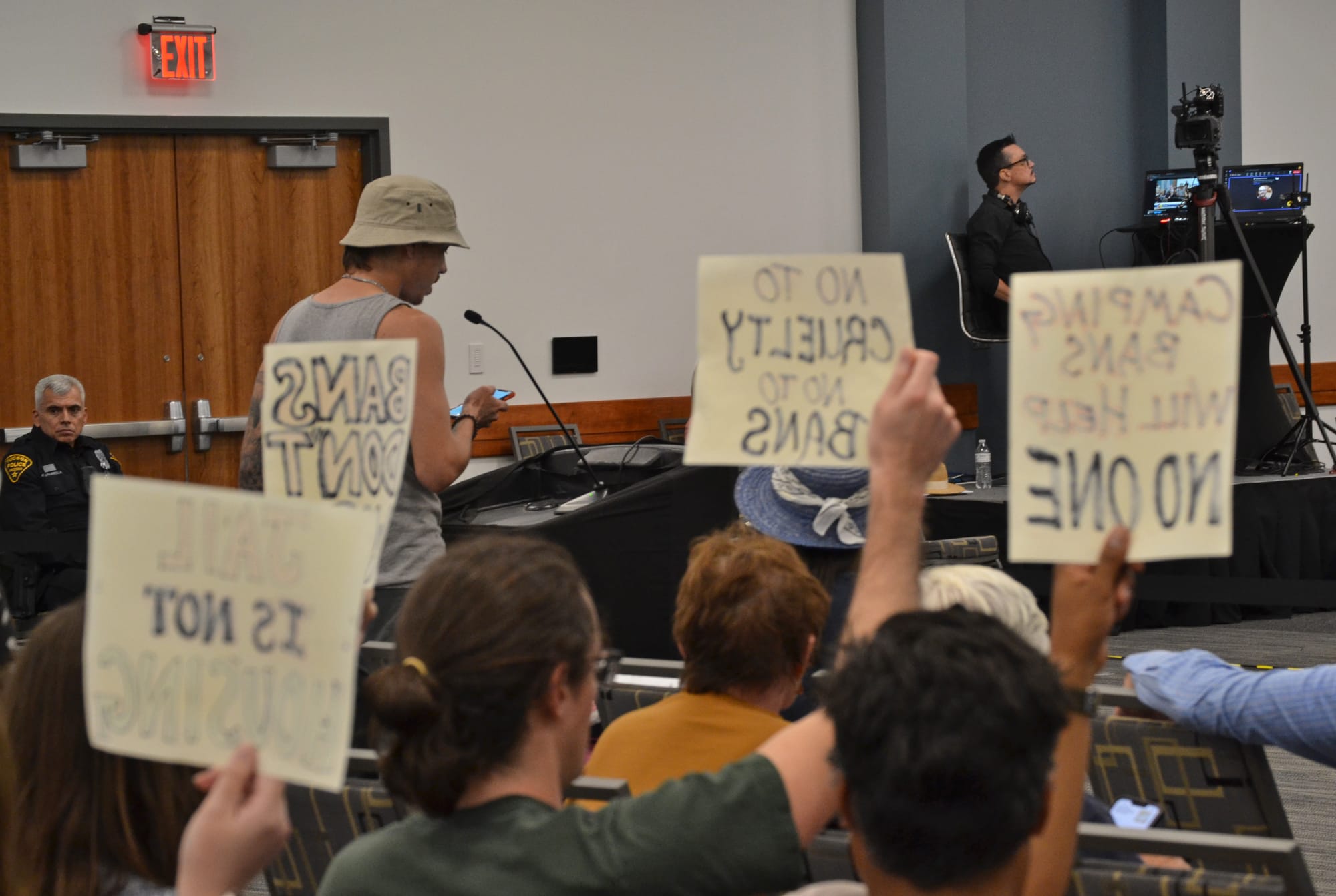
Proposition 312 allows property owners to apply for a property tax refund if their local government fails to enforce certain public nuisance laws, such as those related to illegal camping, loitering or panhandling.
Members of the audience began shouting, and one individual was removed from the meeting after a heated exchange with Romero over the effectiveness of the policies.
“Jail is not a solution,” one person said. “Why don't you go live in a wash?”
The council’s decision highlights the policy divide between the city and local mutual aid groups, which argue that sweeps and police involvement fail to address homelessness and instead punish an already vulnerable population.
On June 13, the Department of Justice released a report on the Phoenix Police Department, highlighting its treatment of unhoused individuals.
The study found that using law enforcement as the primary response to homelessness led to unconstitutional practices, including destroying belongings without notice and detaining people without suspicion of a crime—violating the Fourth and Fourteenth Amendments.
It also cited a 2022 federal injunction barring the city from enforcing camping bans and seizing property without notice. The DOJ concluded that these actions contribute to a cycle of criminalization without addressing the root causes of homelessness.
Despite the DOJ’s findings, many cities have adopted similar policies following the Supreme Court’s ruling in Grants Pass v. Johnson, which held that criminal and civil penalties for camping on public land do not constitute cruel and unusual punishment.
The Tucson City Council’s definition of camping reflects the precedent set by the Supreme Court in the Grants Pass case. As a result, Tucson can legally arrest and charge unhoused individuals for sleeping in public spaces, even if they lack alternative shelter options.
“Imagine having nowhere to take refuge on a day like this,” Community Care posted on Instagram Thursday at 6 p.m., as temperatures hovered around 107 degrees. “Now imagine a mayor and council voting from their air conditioned chamber to make it punishable with a fine and jail time for trying to rest in cooler, shady areas. What unspeakable cruelty.”
Colton Allder is a Tucson-based freelancer who reports for Tucson Spotlight. Contact him at callder1995@gmail.com.
Tucson Spotlight is a community-based newsroom that provides paid opportunities for students and rising journalists in Southern Arizona. Please consider supporting our work with a tax-deductible donation.

